Fate in Harry Potter and Sabrina
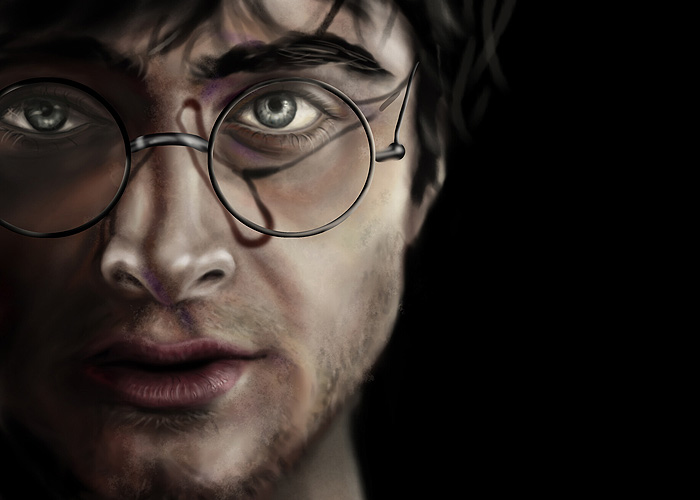
The issue of fate versus free will has been in constant debate throughout the centuries with many philosophers discussing its effects, debating the prospect of unity between the two, or creating distinctions between them. Novelist and other authors have also been discussing these concepts throughout the ages. In this article, we will discuss the Harry Potter series and The Chilling Adventures Sabrina series. Adapted from novels and comic books, the films and Netflix TV series both discuss the concepts of free will versus fate, and also whether fate is subject to preceding events and causes. This article examines how the adaptations of the Harry Potter series and The Chilling Adventures of Sabrina explore the abstract philosophy of fate versus free will and determinism and argues that fate is actually an intertwined conglomerate of aspects including free will and antecedent conditions.

When discussing the concept of fate and free will, it is always important to look at Friedrich Nietzsche’s philosophies on the subject. Nietzsche himself believed that fate is “not merely a transcendent power… but an amalgam of diverse determining aspects.” (Grillaert, 49) Such determining conditions or aspects have a wide range, including manipulation and environmental causes. He also believes that fate and free will are “two counterbalancing forces that complement each other in … opposition” (Grillaert, 51), and that “free will is equal to the human spirit and temperament” (Grillaert, 49). There is a predestined plan for each of us, but many options are available. We can become a free spirit if we have “the will to self-determination…—all [of which are] necessary conditions for breaking free from the traditional morals and becoming a free spirit.” (Grillaert, 47). Both Fate and Free will are essential forces in our lives as Nietzsche believes, and man can thus, determine his own Fate by making his own choices.
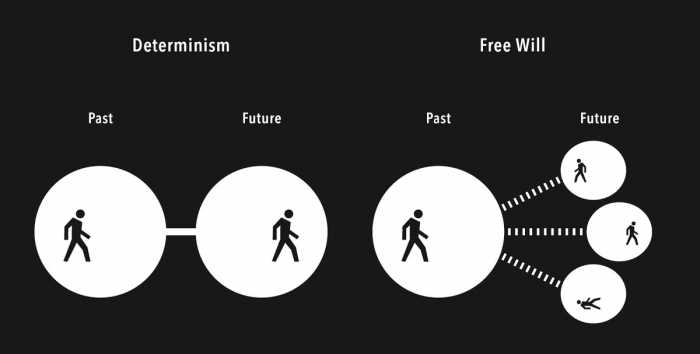
The Stoics, on the other hand, believe that fate isn’t a divine being with complete control. They believe in determinism—where fate is subject to antecedent conditions, entirely lost to a chain of causes. This “chain of causes was thought … to be the substance of fate [thus] to say that [everything is] in accordance with fate is to say that [everything is] in accordance with antecedent conditions” (Gould, 18). But what are these conditions, and what determines them?
The Stoics believed that Fate had that role—to decide the antecedent conditions. Yet they also believed that we each have a cause within us, a free will that isn’t “competing with or cooperating with fate, but [is] a part of the network of causes constituting fate” (Gould, 22). The Stoics also gave man the power to agree with their own fate, saying that “even when my assent is fated, and caused, it is still not necessary” (Brennan, 267). Hence, they believe that Fate is subject to antecedent conditions, and these causes may influence us to choose our fate with our own free will, yet nothing is necessary for our fate to unfold.
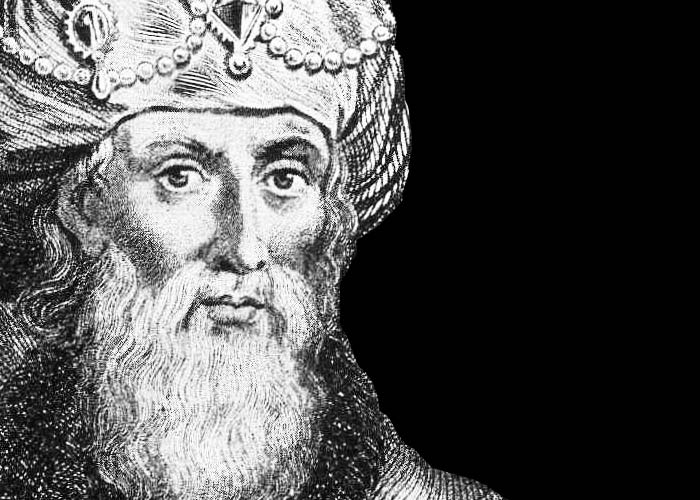
Thirdly, we shall discuss how Josephus and the ancient Jews thought about fate. “Josephus speaks of “fate”, which can be defined broadly as the belief that things are brought about, of necessity, by set causes or impersonal powers” (Klawan, 47). In Josephus’ time the philosophical Israel was split into three different sects: the Essenes, who believed “in the predetermination of all events, to the exclusion of human freedom” (Klawan, 51); the Sadducees, who denied all acknowledgment of Fate as a higher power; and the Pharisees, who took the middle ground. Overall, Josephus agrees with the Essenes compatibilist paradox, where “All is foreseen, but freedom of choice is given” (Mishnah Avot 3.16. translation by Danby, n. pg.). They recognise man’s freedom of choice, whilst also acknowledging that all is predetermined in this life.
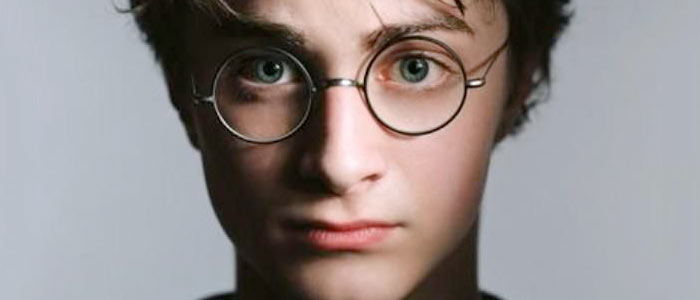
A series that incorporates all these aspects of Fate, Free Will and Determinism into its core is J.K. Rowling’s Harry Potter series and the adaptations into film by Warner Bros. Pictures. Following the adventures of a young orphaned wizard, Harry Potter, and his two friends, Ronald Weasley and Hermione Granger. In a fictitious world, where Harry battles against his own terrible Fate, which entwines him with his mortal enemy Lord Voldemort. Within this world we can see:
“such evidence as Harry’s decisions, [and] Dumbledore’s insistence on moral action… often convinces readers of … free will, [however,] I argue that such magical tools as the Sorting Hat, wands, the Goblet of Fire, and prophecies provide equal evidence for fate’s power.” (Pond, 182)
The Harry Potter series comments on both the power of Fate and Free Will in the protagonist’s life, whilst also leaning towards the side of Determinism—where fate is subject to antecedent conditions, such as choices, manipulation and other causes.
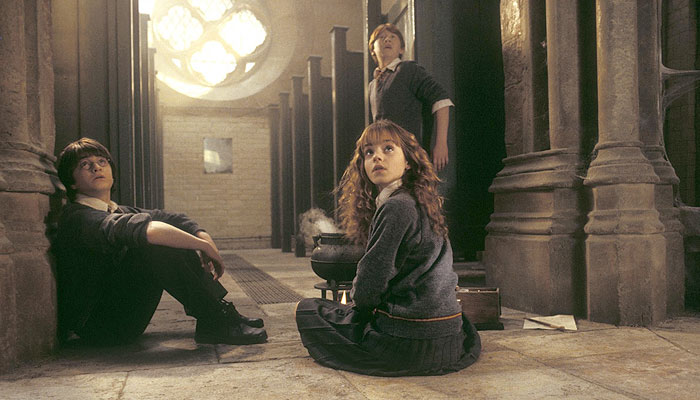
Harry Potter and the Chamber of Secrets has elements of prophecy and fate proclaimed throughout the movie. In this film, Harry faces the prospect of being the heir of Slytherin. He finds that he is able to speak to snakes, and is believed to be Salazar Slytherin’s heir and the one who has opened the Chamber of Secrets, releasing the monster within—“The Chamber of Secrets has been opened. Enemies of the heir, beware” (43:35). Harry struggles with his fate trying to come to terms with his similarities to Voldemort. He questions everything that’s happened to him, the choices he’s made, and the choices that have placed him where he is now. For instance, he questions whether he should have been put in Slytherin house. Dumbledore, however, explains Harry’s predicament to him saying “If I’m not mistaken Harry, [Voldemort] transferred some of his powers to you, the night he gave you that scar” (2:19:38), and he affirms his belief that “It is not our abilities that show who we truly are. It is our choices” (2:21:00). Hence, Harry isn’t bound by his fated abilities and prospects, but rather can choose his own path, and frame his own future.
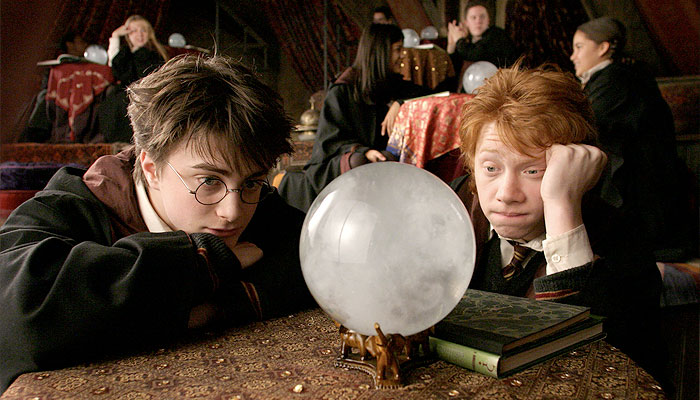
However, in Harry Potter and the Prisoner of Azkaban, we receive more confirmation that fate and prophecies have an overarching power. The power of prophecy is accentuated throughout the film as Harry receives two different prophecies relating to what is to come. He receives a prophecy of death—“Oh, my dear boy. My dear…you have the Grim.” (Trelawney); which is “among the darkest omens in our world. It’s an omen of death.” (31:00)—and later on in the movie, Trelawney prophecies that:
“He will return tonight… he who betrayed his friends, whose heart rots with murder shall break free. Innocent blood shall be spilt and servant and master shall be reunited once more.” (1:21:30)
And so, Harry is supposedly bound by these prophecies. Yet, the events prophesied play out a little different than expected. The prophecies are vague, and they do not include free will and other antecedent causes such as identity. Hence, the power of the prophecies isn’t all-encompassing, but rather subject to other causes and conditions, although still having an overarching effect.
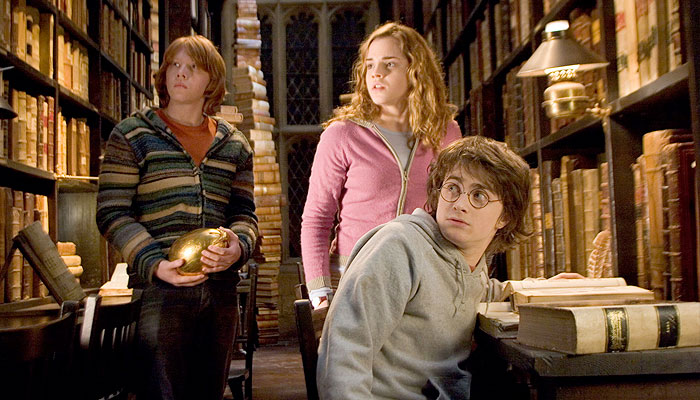
In Harry Potter and the Goblet of Fire we can clearly see the effects of antecedent conditions such as manipulation on fate. The character Professor Moody, throughout the film, helps Harry through the tri-wizard tournament, and, with his help, Harry wins the tournament, but gets transported to a graveyard, where Lord Voldemort rises once again. At the end of the movie, it is explained that this Professor Moody is, in fact, a Deatheater named Barty Crouch Jr., and that he has been manipulating the events so that Harry would end up in that graveyard—“You won because I made it so, Potter. You ended up in that graveyard because it was meant to be so” (2:13:30). Here we see the effect of manipulation on fate. It was fated that Harry be in that graveyard, but it was manipulation of events that caused him to be there. Hence, fate and manipulation are intertwined, with one informing the other.
Through a single prophecy in Harry Potter and the Order of the Phoenix Harry’s fate is revealed. Here we find the binding contract that Harry must follow in order to save his friends and the whole wizarding world:
“The one with the power to vanquish the Dark Lord approaches, … but he shall have power the Dark Lord knows not—for neither can live while the other survives.” (The Prophecy – Trelawney, 1:47:50).
Harry’s fate is revealed, his future is sealed. What can he do about it? Well, once again the prophecy withholds information—it is vague. The fulfilment of this prophecy is an unexpected turn of events. Harry submits to his fate, but the choices he makes leading up to its fruition ultimately alter the outcome.
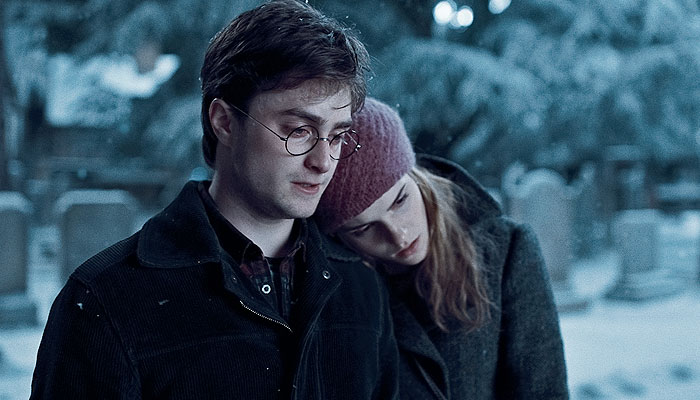
For in Harry Potter and the Deathly Hallows Harry learns of events (antecedent causes) that brought about his fate. In this film Harry is called to “confront your fate” (1:11:50) by Lord Voldemort, who, in acknowledging that he must be the one to kill the boy, also submits to Fate. Dumbledore and Professor Snape also realise that Harry must die:
Dumbledore: “…the curse rebounded. … a part of Voldemort’s soul latched itself onto the only living thing it could find … A part of Voldemort lives inside him.”
Snape: “So, when the time comes, the boy must die?” (1:20:00)
Dumbledore: “Yes, he must die. And Voldemort himself must do it. That is essential.” (1:22:50).
Harry had to die; it was his Fate. Yet, Harry was also a horcrux, and in dying he made Voldemort vulnerable. Thus, it was also fated that Harry return from the dead and kill Voldemort, now that he was weak, as Harry says—“I have to go back haven’t I?” (1:33:40)—but Dumbledore assures him that “that’s up to you”. Harry can choose whether to accept death or return to confront his Fate once again. Without this choice Harry’s fate would be void. Hence Fate, Free Will, and Determinism are all intertwined.
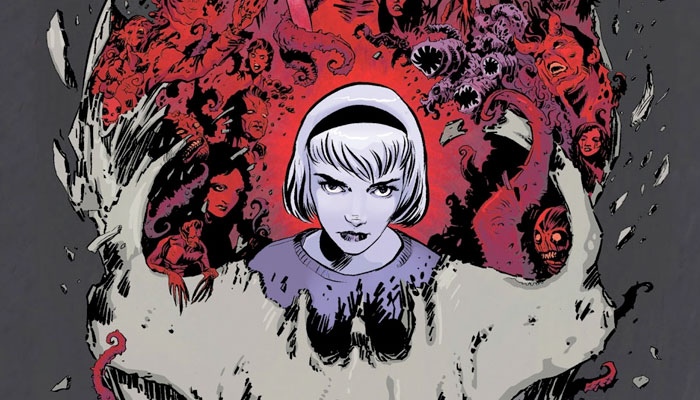
The Archie comic The Chilling Adventures of Sabrina, illustrated by Roberto Aguirre-Sacasa, and Robert Hack, also supports the notion of antecedent conditions informing Fate. Although not as clear as in the Netflix series, the comic book also demonstrates manipulation, tradition, and the power of Fate. Following the life of young Sabrina Spellman, a half-witch, who’s fated to do great things, the comic shows her journey, and the choices she makes, to become a witch. It also shows how conditions such as manipulation and tradition can affect someone’s free will, and ultimately their Fate. As Sabrina journeys towards the ‘path of night’ tradition holds her back from diverging, and manipulation forces her to choose the Dark Lord. These preceding conditions affect her fate and her ability for self-determination.
Within The Chilling Adventures of Sabrina comic book, Fate and Free Will are expressed quite clearly, as being powers we cannot fully change, but can affect. For instance, Fate is clearly identified in the following passage, when Sabrina is about to sign the Book of the Beast:
“And the Devil will set his book on the altar and say: ‘You danced for me, girl. You spilled blood for me. Now, write your name in my book and become my had-maiden.’ And since He is your Master, you will step up to the altar… you’ll know… there is no other way your dark destiny could have played out…” (Sabrina comic, n. pg.)
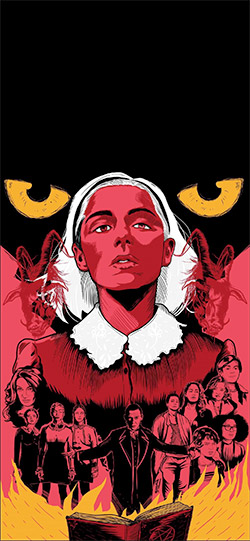
Yet the event that follows, stopping this signing, has been caused by a precursory manipulation of Harvey. For here, Harvey Kinkle, Sabrina’s boyfriend, interrupts the ceremony, stopping Sabrina from signing her name. But before this happens, Ms. Porter manipulates the situation, by feeding information to Harvey and telling him that he must stop the madness. So, this earlier conditioning affects Sabrina’s fate by stopping her from signing the Book of the Beast.
The Chilling Adventures of Sabrina Netflix TV series accentuates the power of antecedent conditions over Fate, especially in reference to manipulation, and choice. The series follows the journey of a young girl, Sabrina, who is half-witch, half-mortal trying to choose between the ‘path of light’ or the ‘path of night’. This choice is often misinformed and her fate manipulated by agents of the Dark Lord, in order to make her willingly choose the ‘path of night’ and become a witch. Throughout the series Sabrina is faced with incredibly hard decisions, as she wants to keep her own free will but also needs the power, that comes with being a witch, in order to save her friends—it is up to her to choose, using her self-determined will, what she wants. Altogether, The Chilling Adventures of Sabrina Netflix series, shows the battle between Fate and Free Will, but also show how antecedent conditions affect both powers.
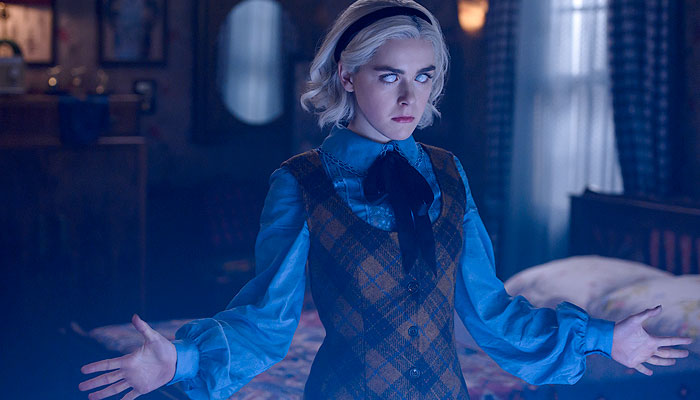
As mentioned above, The Chilling Adventures of Sabrina, holds, within the Netflix series, a commentary on Fate and Free Will. In Season 1 Episode 2, “Chapter Two: The Dark Baptism”, Sabrina is offered a chance at power, granted that she accepts Satan as her Master. In this episode, at the altar, Father Blackwood says, “Our Dark Lord teaches us there is no law beyond ‘do what thou wilt’.” (43:00) advocating free will, yet it becomes evident that pledging herself to the Dark Lord will not allow her to have it:
Father Blackwood: “you swear to obey without question any order you may receive from the Dark Lord…you swear to give your mind, body and soul unreservedly to the furtherance … of our Lord Satan.”
Sabrina: “You said I would have free will…” (45:00)
In order to gain witch powers, become a witch, and fulfil her fate, Sabrina must give up her free will. She must submit to Fate and lose her self-determination, but as is clear by her response—“my name is Sabrina Spellman and I will not sign it away” (47:30)—she decides that her free will, to choose her own path, is more important.
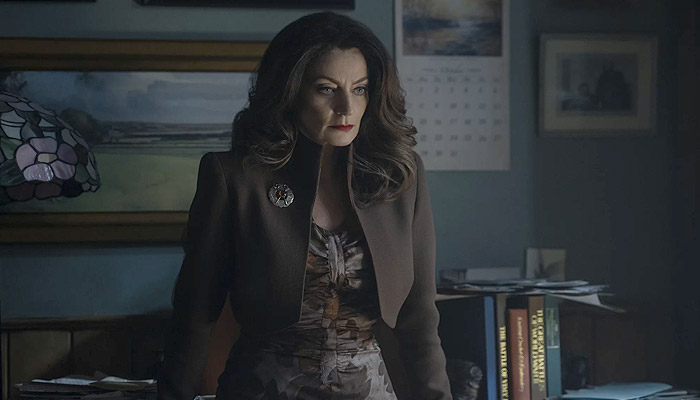
However, often, when it comes to Fate, we don’t have a choice, even if our fate is manipulated by others. This specific condition or cause of Fate altering is clearly evident in Episode 10 of Season 1 —“Chapter Ten: The Witching Hour”. The manipulation of Sabrina’s fate is mainly caused by Ms. Wardwell, who doubles as Madame Satan. She makes it so that “Sabrina would have no other option. There would only be one path to save the mortals—the path of night” (36:35). Sabrina must fulfil her fate and sign her name in the Book of the Beast, otherwise her mortal friends will die. Her fate is sealed, through the manipulation of events by Ms. Wardwell. The Dark Lord takes her free will—“When I call on you, girl, you must answer” (40:30)—and now her fate becomes reality. She must do the Dark Lord’s bidding, it is her fate. And she will do it, no matter how hard she tries to choose not to, her fate works outside of her hands, because it is being manipulated by others.
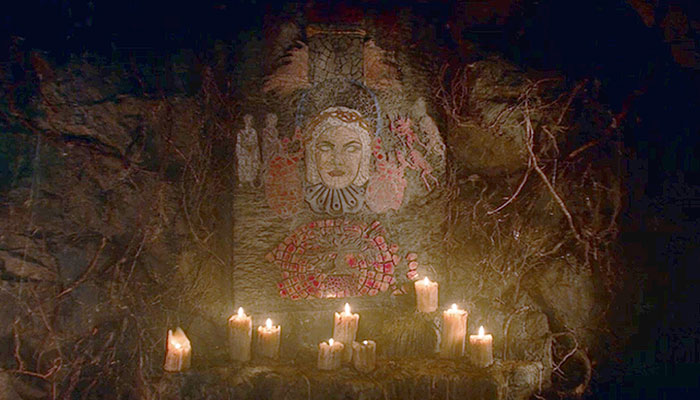
Her fate finally comes to fruition in “Chapter 19: The Mandrake” (2.8) when a prophecy about her is discovered, and she accidentally fulfils it. This prophecy calls her a “Herald of Hell” and describes how she will “play a key role in bringing about the apocalypse”, as Ms. Wardwell explains (5:50). She will “precipitate the end of days” (29:30) by performing certain miracles. Yet, once again, she tries to facilitate her own plan and exercise her own free will, but in doing so, brings about the end of days. She realises she is being manipulated, and removes it, yet through her own choices—her own free will—she precipitates the end of days anyway. So, in essence, this episode shows how both Free Will and antecedent conditions work together to form Fate, for both the manipulation of Ms. Wardwell and the free choices of Sabrina worked to fulfil the prophecy.
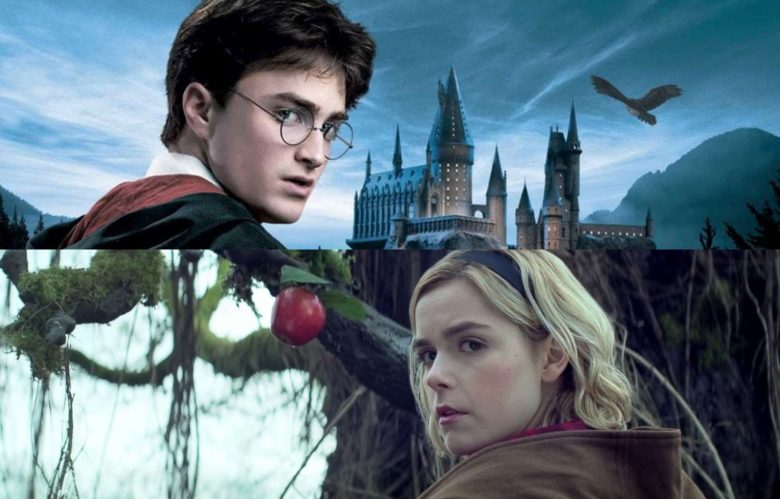
Fate is therefore a conglomerate power, formed up of antecedent conditions and causes; free will and self-determination; and predetermined factors. As Nietzsche himself said, Fate is “not merely a transcendent power… but an amalgam of diverse determining aspects.” (Grillaert, 49). Considering the evidence from both Harry Potter, The Chilling Adventures of Sabrina, and ancient philosophies we can come to the conclusion that Fate is a power that predetermines all things, yet is not all-encompassing, and is a combination of many factors, including Free Will, and antecedent conditions or causes.
Works Cited
Brennan, Tad. Fate and Free Will in Stoicism: A Discussion of Susanne Bobzien, Determinism and Freedom in Stoic Philosophy [Chapter]. Oxford University Press, 2001, pp. 259-287.
Danby, Herbert. The Mishnah: Translated from The Hebrew with Introduction and Brief Explanatory Notes. Oxford University Press, 1933, p. 452.
Gould, Josiah. “The Stoic Conception of Fate”. Journal of The History of Ideas, Vol. 35, no. No. 1, 1974, pp. 17 – 32., Accessed 27 May 2019.
Grillaert, Nel. “Determining One’s Fate: A Delineation of Nietzsche’s Conception of Free Will.” The Journal of Nietzsche Studies, vol. 31, 2006, pp. 42-60. Project MUSE, doi:10.1353/nie.2006.0002
Klawan, Jonathan. “Josephus On Fate, Free Will, And Ancient Jewish Types of Compatibilism”. Numen, Vol. 56, no. 1, 2009, pp. 44 – 90., Accessed 27 May 2019.
Pond, Julia. “A Story of the Exceptional: Fate and Free Will in the Harry Potter Series.” Children’s Literature, vol. 38, 2010, pp. 181-206. Project MUSE, muse.jhu.edu/article/380767.
What do you think? Leave a comment.











The contrast between the two series is startling. Fate and free will can work together, but one can have more effect on the other. Sabrina definitely has less of a choice than Harry Potter does.
The Netflix Sabrina doesn’t sound all that hopeful or uplifting. Whose idea was it to make it so dark? Is there any chance the series will end happily without the apocalypse destroying everything? (I haven’t seen the series and am not sure if I want to.)
I agree, it is very dark. However, I must commend the author and the producers for doing such a good job in representing the Satanic cult religion. And no, it doesn’t end very happily, although it hasn’t really finished yet I don’t think.
I didn’t really thing so much about the role of fate so much in Harry Potter before, but it is a nice contribution. Good job!
My two guilty pleasures in one article. Good job!
The Netflix fantasy genre formula: scrape together around 8 hours of world-building, usually involving a hero from humble backgrounds discovering their destiny… first season will probably have a conclusion as the writers won’t know whether a second season is likely.
Most of the good ideas are contained in season 1.
Continue on for several more seasons, each with less plot than the previous one.
The way I see it is that you have free will, but magic will bite you in the ass if you try to mess with it too much.
Like Voldemort?
Did magic pull the strings and simply make Voldemort lose? Is magic consciousness or have some rules that would eventually stop people like Voldemort?
No, because he didn’t mess with prophecy. He tried to fulfill it. Magic didn’t care who won.
His downfall came from not killing Lily immediately, which had nothing to do with the content of the prophecy.
However prophecy required that either Harry kills Riddle, or Riddle kills Harry (or “and”). So that this happens was required and was certain to happen. Regardless of what they try to do.
If free will is a thing the prophecy would really mean nothing.
The prophecy only tells what could happen in the future and only come true because of a complicated set of events happen.
It did not add any new rules, it did not make Voldemort unkillable by anyone but Harry, it simply told that one would have to kill the other but really anyone could have killed Voldemort or Harry if free will is a thing.
If free will is not a thing then you could simply say that the prophecy was a spolier of the future (which had already happened).
If free will is limited whould basically mean that the prophecy was forced to come true but the future was uncertain but limited (as the prophecy must come true).
But as Dumbledore points out, plenty of prophecies go completely unfulfilled, which seems to indicate that there is such a thing as free will.
The prophecy only really means something because Voldemort put stock in it. He made it into a self-fulfilling prophecy as much as someone who thinks they can’t do X will generally be unable to do X.
A possible explanation to never ending Harry Potter fate discussions would be that time-travel is only ever possible when it creates a consistent loop. Harry and Hermione going back creates such one. In this case, we still have cause and effect, just in another time-direction. By going back in time, a decision under free choice, they caused the earlier chain of events.
This doesn’t mean that everything in HP is predetermined, just that in cases of time-travel, a cause may happen later than an effect. But the initial cause would still be decided by free will.
In Prisoner of Azkaban its explicitly stated that time travel can change the past, its just thats its forbidden to do so, Hermione even mentions that they have to try to avoid that, so they accidentally kill their past or future selves.
I think it might be either a case of [higher power] enacts a plan that doesn’t coerce their choices it just knows that’s what they were going to do, y’know, some sort of metaphorical loom of fate thing, or that a lack of free will isn’t necessarily a bad thing and has only been co-opted into meaning “being a mind-controlled zombie slave” or whatever in pop culture because of our individualist culture. Y’know, technically, for a certain definition of free will, it’s impossible because we can’t make a decision without any external factors
The past is written the ink is dried….just like Hodor in GOT was always going to become Hodor by Bran making it so. Closed loop.
Great piece.
In ancient Greek literature, there is both unavoidable prophecies and free will. This may seem like a paradox, but it is somewhat explained by the idea that, the prophecies do not force things to happen, but rather are simply explanations of what will happen.
The characters can all do whatever they want to avoid these prophecies, but it will just sort of happen. They have free will, but the prophecies take this into account.
I like the new Sabrina but I feel it is unclear on its own view of the universe. The witch bunch seem to be able to turn their worship on whatever the next thing is, and to apparently completely forget their previous focus. As good-looking and well-designed as the series is, its conceptual underpinnings are fluid and changeable, which makes for inconsistent storytelling.
From my perspective, one of the main themes of the series is free will and choice. Theologically, it may be assumed that even the angels, like humans, were also given free will and the ability to walk the paths of light, gray, or darkness. Lucifer is the chief fallen angel that appeals to human nature and makes those that walk in the light and in the gray find the wrong choice, the temptation, more appealing instead. While obviously open to personal interpretation, the series definitely takes liberties on these aspects in the first few seasons, especially regarding many of the characters.
While my knowledge of Wicca/witchcraft is basic, it’s also important to note that (and I’m generalizing here) practitioners of Wicca have some varied/unique flexibility in regards to which deities/spirits/beings/etc. they choose to worship, which is more-or-less articulated in the series and the liberties that the writers/producers took overall. For example, some Wiccans may worship the Judeo-Christian God, the ancient Greek Goddess Hera, and the archangel Lucifer to bring counterbalance to themselves and the universe. Does that mean that all Wiccans are Satanists and dabble in dark magic/Necromancy/the Occult? No, of course not…. in reality, most Wiccans strive for the light and the gray as a means for humanity, nature, and the universe to be in balance and harmony with each other.
Ultimately, the choice (again, choice) of Aunt Zelda to go against everything her Coven had believed for centuries — the dark patriarchal society that pretended to embrace free will and equal empowerment, which in reality, were sinister and arrogant lies from the “Father of Lies” and his puppet Blackwood — and embrace Hecate/Hekate, a more traditional and powerful representative for the Coven — was actually a very powerful message that the show finally highlighted and emphasized.
Watched Seasons 1-3 of Sabrina with my daughter during Lockdown 1.0. Highly entertaining nonsense with a good cast throwing themselves into the whole thing with gusto.
I really wanted this to be a new Buffy obsession but I didn’t last even to the end first series.
Definitely not bad by any stretch but just didn’t hold my attention – perhaps it deserves a rewatch at some point.
Isn’t this a children’s programme?
No.
“Free will” is a concept that is already pretty questionable in the real world. You can make it seem highly unlikely even without the use of prophecies or divination.
I think there is that interesting part in the Harry Potter books, where Dumbledore explains to Harry, that he will fulfill the prophecy because of who he is and not necessarily because of fate. The idea is that Harry will never give up on stopping Voldemort and Voldemort will never give up on killing Harry, because of the kind of people they are.
Why are we trying to read deeply into superficial texts?
I see prophecies as predicting what will happen, not making things happen. Everyone has choices. Seeing the future is just knowing what choices were already made. The Pottermore article about Time Turner’s showed that the future could be changed, further proving that it’s our choices shaping the future.
If they had no control, they could not change time. They did.
Time traveling, fate and free will is always very interesting, specifically in fantasy like Harry Potter and Sabrina.
I understand what you mean however I think the topics of time travel and free will are completely seperate. Time travel in the HP universe was fascinating to me as there is no alternative universe that is created when someone uses a time turner. They are going back in time to fulfill the past (if that makes sense). They still have free will.
In the instances of time travel they really don’t. Although I think they do make that choice themselves (to travel through time or not) and the timeline in a sense just already knows what they will choose.
Simply put… The fact Sirius and Buckbeak survived determined free will. Because at a later point in time they decided to go back and change that. But as they did so, the events the characters live are already changed. The way the reader sees it there seems to be no free will, but the fact it happens determines free will.
It’s like the Grandfather paradox… Or bases upon the theory of time travel by Nokikov. And you can read on the notion of time loop.
I believe in the wizarding world a time travel initiates a loop. And you basically need the time Turner to initiate and close that loop.
The issue with timetravel/time is set in stone is the fact that its not predetermind, what happens is exactly what you would and will do in the situation, with all the information you had.
The time-turner allows you to travel through time, but its in a closed loop, you can’t go back and kill yoursaelf because you DIDN’T go back and kill yourself.
TR;DR: Free-will exists, time is just a record of what you chose.
Will I like Sabrina Netflix version if I liked the sitcom one? 🙂
No, you won’t. Sorry to say.
Another interesting aspect of the question of free will vs. fate in the Harry Potter series is the fact that Neville Longbottom also fit the description of the prophecy. When Voldemort learnt about the prophecy and chose to go after the Potters, he unwittingly played an important role in how things unfolded—he created the conditions that would be the foundation for a Harry Potter that would feel like killing Voldemort was something he had to do. So on the one hand, it seems that Voldemort exercised his free will and manipulated events, but at the same time it was his very actions that eventually brought about his demise.
I think when it comes to predetermination, the whole time travel thing in Harry Potter PoA is probably way more telling then divination. It’s apparently physically impossible to change time (or at least we never see it happen in the original books), which would suggest that people are guided by fate after all.
Harry is not a hero, because he is the chosen one. He is the chosen one, because he is a hero.
I think the lives of the characters in the HP universe are entirely shaped by an all powerful outside force called Jo.
I have some bad news for you all about modern interpretations of the concept of free will.
Great article. Reminds me of one of my favorite quotes:
Because you didn’t come here to make the choice. You’ve already made it. You’re here to try to understand why you made it.
-Oracle, Matrix Reloaded
The past not being able to be changed via time travel doesn’t mean that people have no free will. It just means that the past can’t be changed by using time travel.
Lovely stuff. Love Sabrina and HP.
Thank you for this, especially the discussion of free will and prophecy in HP and how Harry’s choice influenced his being a Gryffindor. Personally, I think he’d have made a good Slytherin, or at least would’ve brought more nuance and goodness to the house. But oh, well. I am glad he had the choice.
The question of fate vs. free will has always intrigued me. I had a blast reading your article and I like how you chose to evoke this question through two of the best magic shows!
I like to consider the question of free will and destiny like this:
If we were to say that there was a kind of spiritual or cosmic guiding hand, whether that would be God or some more abstract force of nature, this grand plan at work is meant to lead to a meaningful and ultimately benevolent goal. And some are called, for whatever reason, as avatars for this grand plan.
But, in the end, I feel like it is their choice to accept or reject their calling. What changes is consequences. If they reject the call, someone else will come along to be chosen to take up the cause, but not before a series of domino-effect consequences. The end goal is still there, it’s just become harder to get there and may take longer. And the one who rejected their destiny will have to live with the burden of their decision and how it affected everyone and everything else regardless.